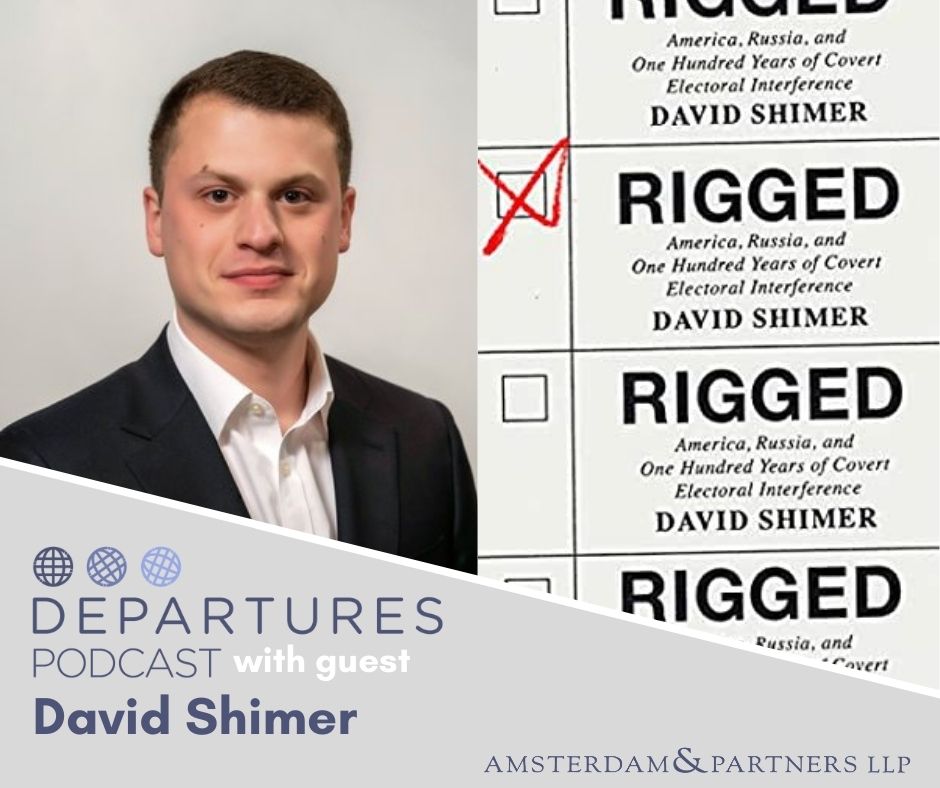Departures Podcast with David Shimer

We often discuss Russia’s actions during the 2016 US election as though it were something “unprecedented.” But in fact, there is a long established history of Russia, the Soviet Union before it, and the United States engaging in widespread efforts to interfere in elections around the world. The more important question is what to do about it.
David Shimer, a Global Fellow at the Wilson Center, joins the podcast to discuss this question and more from his latest book, “Rigged: America, Russia, and One Hundred Years of Covert Electoral Interference.”
Speaking with host Robert Amsterdam, Shimer argues that we need to restore the historical perspective on covert election interference in order to formulate an effective response – to understand that no, this is not anything new, but that there are clear actions that can be taken.
Shimer discusses the important distinction between Russia’s intentions to covertly influence US public opinion vs. attempts to physically change or alter ballots and voting systems infrastructure. The crucial failure of the Barack Obama administration was to be overly concerned about the latter risk, and to fail to act preventively to deter the former, he argues.
While we have seen many examples around the world of political leaders openly seeking Washington’s or Moscow’s support during an election, it is more rare for a US leader to invite that interference as then-candidate and current President Trump has done.
“Donald Trump has openly solicited foreign help, he also has been very reluctant to confront Russia over its interference in our elections, he has at times sided with the assessment of Vladimir Putin over that of our own intelligence service and that matters, because what that signals to Russia is that they can push farther without experiencing any consequences,” Shimer says.
“If you are Russia right now, you do have to make a calculation about where to interfere, how to interfere, but you know for sure that America is already a mess in terms of its actual societal functioning. So it’s not like we will have a unified response if Russia does push forward, and Russia also knows that the president has been deferential to Russia’s president for the last four years, which is a recipe for a pretty bad outcome for America’s perspective, but it remains to be seen just how far Russia will choose to go in subverting this election.”











